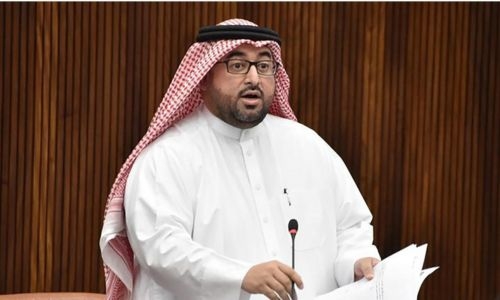The Parliamentary Legal and Legislative Affairs Committee has recommended against lifting the parliamentary immunity of MP Hamad Al Doy, following complaints about statements he made regarding alleged unethical practices at Amwaj Islands. The statements led to a dispute with another MP and criticism of the head of the Amwaj Islands Central Owners’ Association on social media. The association announced legal action against Al Doy for defamation, while he claimed they were attempting to distort his comments.
The parliament’s bureau is delaying the presentation of the committee’s report to the full parliament to allow for potential reconciliation between Al Doy and the complainants. According to internal regulations, a decision on lifting immunity must be made within one month of receiving the request. If a decision is not reached within the next two weeks, the delay will be seen as implicit approval to lift the immunity. Bahraini parliamentary regulations prohibit legal proceedings against a member during a session without prior parliamentary approval, except in specific cases.
The controversy surrounding Al Doy’s statements has sparked a debate within the parliament, with members discussing the implications of lifting his immunity. The delay in presenting the committee’s report indicates a potential attempt to resolve the issue through reconciliation rather than formal action. The situation highlights the importance of parliamentary immunity in protecting lawmakers’ ability to express their opinions without fear of legal repercussions, while also balancing the need for accountability.
The ongoing dispute raises questions about the role of social media in political discourse and the limits of freedom of speech for public officials. The controversy surrounding the allegations made by Al Doy highlights the challenges faced by politicians in a digital age where statements made in parliamentary sessions can quickly spread through social media and potentially lead to legal action. The involvement of the Amwaj Islands Central Owners’ Association adds another layer to the dispute, bringing private entities into the realm of parliamentary immunity and accountability.
The delay in reaching a decision on lifting Al Doy’s immunity reflects the complexities of balancing individual rights with the responsibilities of public office. The parliament’s internal regulations provide a framework for addressing conflicts involving parliamentary members, ensuring a fair and transparent process for resolving disputes. The outcome of this case will have broader implications for the protection of parliamentary immunity in Bahrain and the broader Middle East region, highlighting the ongoing challenges faced by lawmakers in navigating the intersection of politics, social media, and legal accountability.
In conclusion, the controversy surrounding MP Hamad Al Doy’s parliamentary immunity reflects the delicate balance between freedom of speech and accountability in the political arena. The decision by the Parliamentary Legal and Legislative Affairs Committee to recommend against lifting his immunity underscores the importance of protecting lawmakers’ ability to express their views without fear of legal repercussions. The delay in reaching a final decision highlights the complexities of resolving disputes within the parliament and the role of reconciliation in addressing conflicts. As Bahrain continues to grapple with the implications of social media and digital communication on political discourse, the outcome of this case will serve as a key precedent for the protection of parliamentary immunity in the region.











